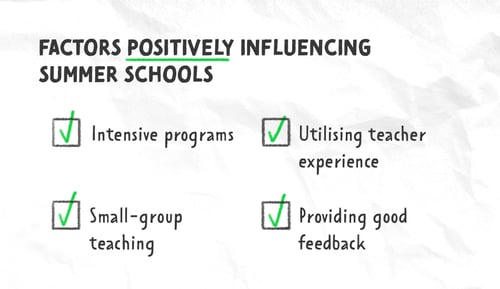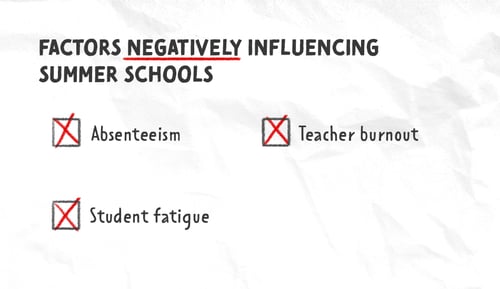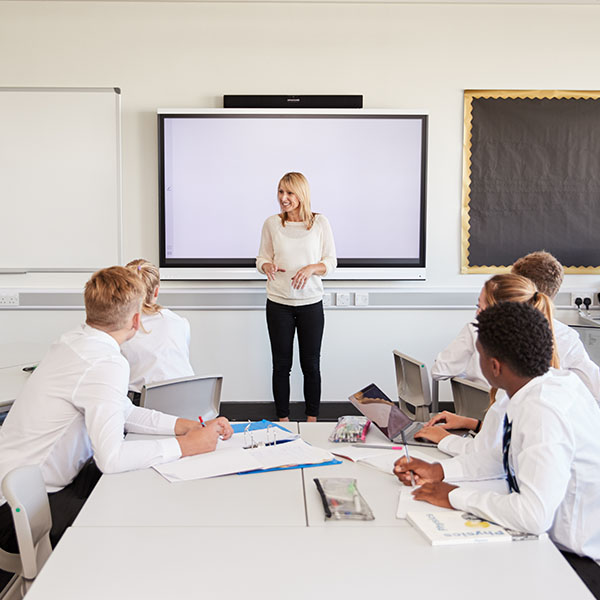On the 24th of February 2021, Prime Minister Boris Johnson announced the government’s catch-up plan for students to mitigate the learning losses experienced: summer school programmes. These summer programmes are set to be offered to students transitioning to Year 7 in September 2021 and to all secondary school students.
For many educators, summer schools are a welcome relief. Sir Peter Lampl, founder and chairman of the Sutton Trust and chairman of the Education Endowment Foundation, described targeted summer schools as a “promising start” and a great way of accelerating students’ learning.
So what should schools be considering when planning their summer schools? What does the research say about it? We had a look…
What the Research Says
Research has highlighted the benefits of a traditional summer school programmes on student achievement, with the results not being crystal clear. Research by the EEF Toolkit showed that attending summer school contributes an additional two months’ progress to students’ learning and academic attainment compared to students who did not attend.
This subsequently increased to four months’ progress if the programmes were intensive, utilised experienced teachers and had small-group teaching and an impressive eight months progress if students received good feedback. Some studies suggest that academic gains are even greater for students from disadvantaged backgrounds, but these findings are not always consistent.

The effectiveness of summer school on student achievement is dependent on the focus of these programmes – is it academic or extra-curricular? As Ofsted inspections highlighted, Covid-19 has had a detrimental impact on students’ social skills, attendance and achievement. Further research also illustrates that primary school children are two months behind, a clear academic focus for summer school is essential. In fact, research shows that summer school programmes that don’t have a strong academic focus have limited effects on student learning.
What Schools May Need to Consider
Recovering from learning losses as a result of the Covid-19 pandemic is going to take time, most likely several years. Therefore, a single summer school programme may be a positive start, but is by no means a quick fix. As with all interventions, there are challenges that need to be carefully considered and addressed before implementing these summer school programmes.

Absenteeism
For summer schools to work, it is essential that schools implement the right strategies to ensure student attendance at these summer programmes is high. However, recent research shows that less than 50% of students actually attend summer school when voluntary.
With restrictions coming to an end as summer approaches, student attendance is likely going to be the key challenge for schools. Although evidence suggests that students want to get back into a structured school environment, families are going to want to travel, whether it’s to finally go on holiday or visit friends and family.
Even in a “normal” year, absenteeism is a serious concern because of its detrimental impact on academic achievement with poor attendance leading to poor academic achievement. Research shows that for every lesson missed, a student’s final exam score decreases by 2.124% on average – a decline that no student can afford. But how do schools ensure engagement from students, especially when attendance is voluntary? Strategies could include, but aren’t limited to:
- Re-emphasizing the ‘why’ behind the importance of the programme to both students and parents to encourage their intrinsic motivation
- Parental buy-in
- Having high expectations of students
- Giving wise feedback to students whilst they are there
Teacher Burnout
Another issue that school leaders will need to address is the risk of teacher burnout. Over the past year, teachers have been under enormous amounts of stress as they’ve been forced to create and change lesson plans for both classroom and distance learning environments. Teachers report working an extra 60-65% more hours to keep up with the demands of online teaching and ensure that students are still engaged whilst staring at a screen all day.
Therefore, the need for a well-deserved break to mentally and physically recover is important. Finding the balance between staffing these summer schools and managing this recovery is going to be a tricky tightrope for schools. This means the length of the programme and external support will need to be factored in.
Nonetheless, a Teach First Survey by TeacherTapp found that 61% of teachers were willing to participate in the summer school programme, with 32% of teachers saying they would be willing to work for one week and 29% of teachers would be happy to work longer than one week.
Need some support teaching your students about effective strategies and habits that will help them catch up? We can help. In person or online, live or self-access, we have the workshop you need. Browse our range of students workshops here or get in touch to discuss how we can help your school.
Student Fatigue
There is no doubt that students have been hit hard by the pandemic. Despite growing familiar with how distance learning and isolation work with each subsequent lockdown, their overall well-being has taken a hit.
Students are already frustrated and overwhelmed, with many reporting increased mental health problems such as depression, anxiety and loneliness. One study found that one-fifth of Britons felt that their friendships had been negatively impacted by the pandemic. So many are looking forward to a summer spent with friends, not in school.
One way to reduce student burnout is to help develop students’ resilience now so they’re prepared for what is expected of them over the summer. This could be done by altering their perspective of summer schools and why it’s important. Encourage students to set both short-term and long-term goals and emphasise how summer school can help them achieve these goals. Alternatively, encouraging a growth mindset is another great way of reducing students’ stress and improving their mental health.
FINAL THOUGHTS
Although research suggests that the more intensive summer programmes result in better learning progress, the applicability of those findings for this year may not be as strong, as the last 12 months have been such an anomaly. The research on summer schools typically looks at a traditional summer school programme, not a catch-up post pandemic one.
That being said, there are lessons that can be learnt from this research and guidelines that do emerge. A strong academic focus, led by great teachers with a high emphasis on attendance and staff/student well-being should significantly help.






